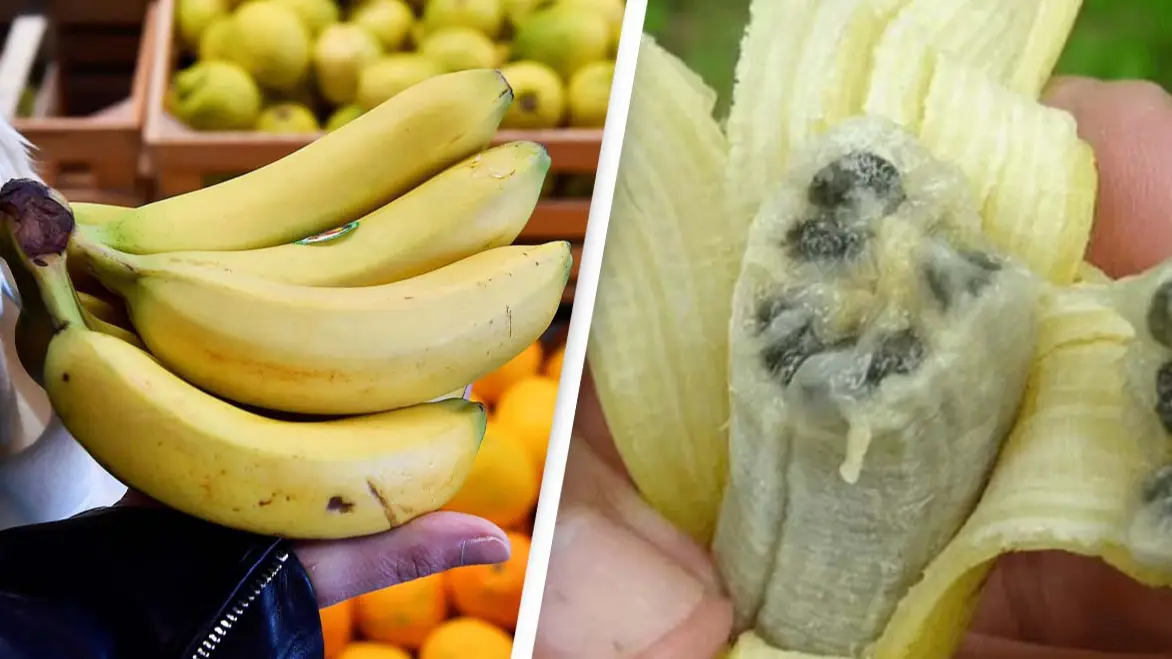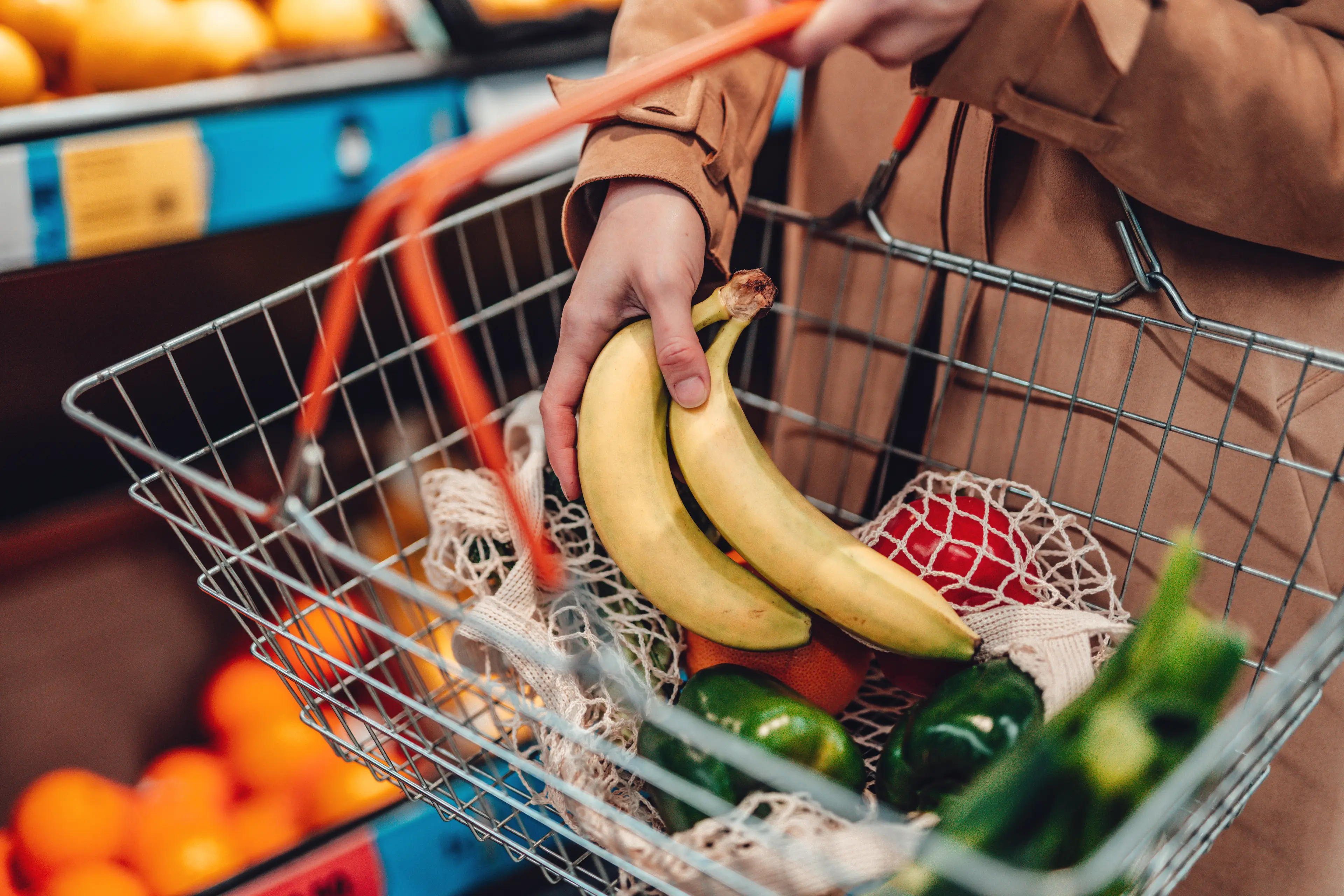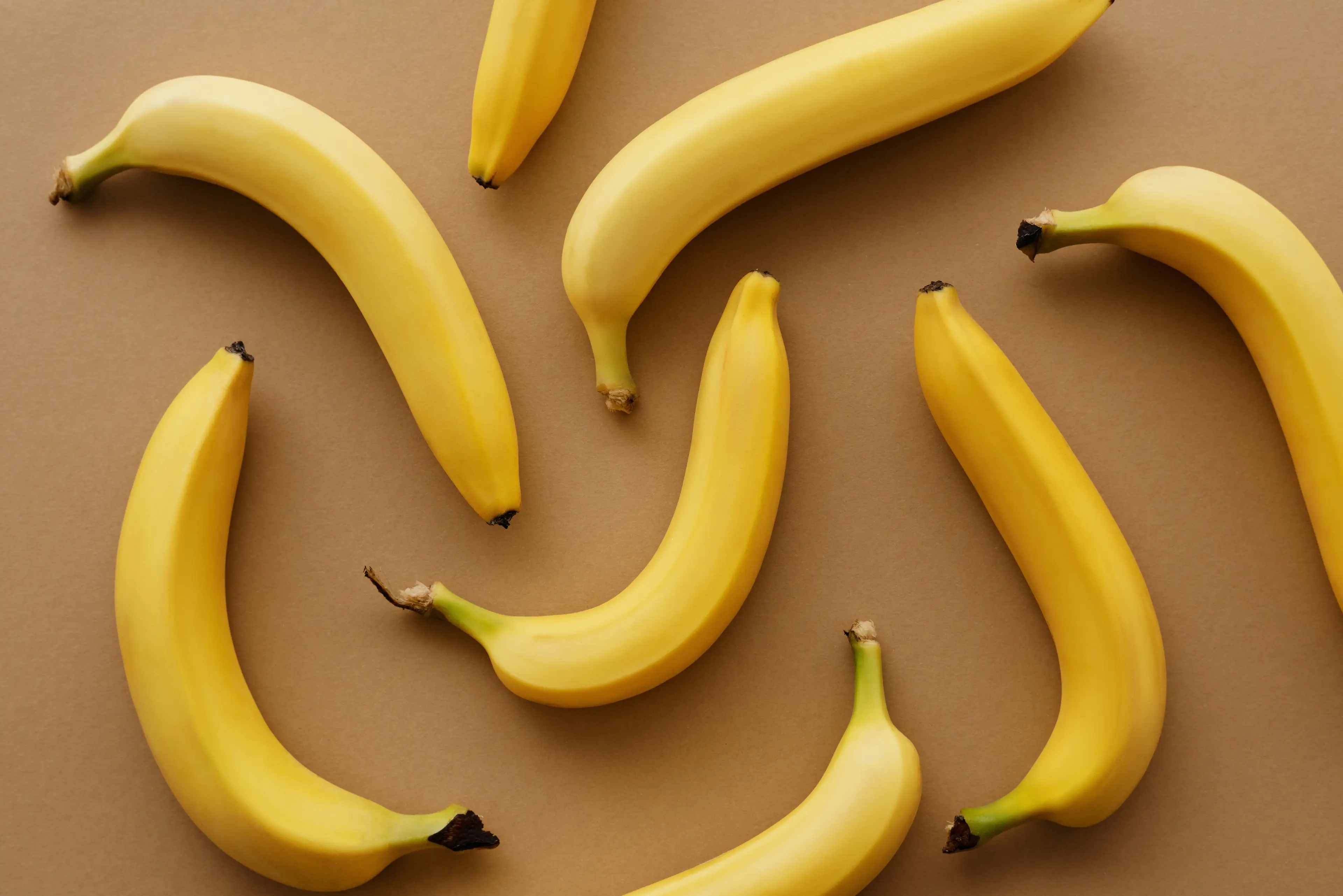
A particular type of banana is said to be on the brink of extinction.
Banana lovers (get your mind out the gutter) worldwide will be disappointed to know that the Cavendish banana is at risk of being wiped out as a result of a fungal disease.
It's believed that humans eat over 100 billion bananas each year, many of which are Cavendish - 47 percent, to be precise.
Advert
But crops in Asia, Africa, the Middle East, Australia and Central America have been badly affected by the soil-born fungus known as Panama disease.
The disease - also known as banana wilt - is described as 'devastating' for bananas as it targets the fruit's vascular system and reduces the amount of water it intakes from the soil.
This isn't the first time that Panama disease has ravaged banana crops worldwide; a strain of it known as T1 also previously eradicated a type of banana called Gros Michel.
According to James Dale, a professor and leader of the banana biotechnology program at Queensland University of Technology, it was 'the main export banana in the first half of last century'.

But by the 1950s, banana wilt had infected all Gros Michel farms, forcing farmers to find a new variety.
It was then that the Cavendish became popular as it was resistant to the T1 strain.
The T4 version of Panama disease that's currently affecting Cavendish crops moves much slower to its predecessor, so Dale thinks we still have 10 years before it goes completely extinct.
While we have time to potentially save the crops, there isn't one way to do so.

Journalist Dan Koeppel, author of the book Banana: The Fate of the Fruit That Changed the World, explained to Insider: "I'd say right now, nobody is even close to solving the problem.
"The answer is going to be the end of monoculture. The answer is variety."
Similar to what happened in the 1950s when Cavendish took over as the most popular type of bananas after Gros Michel's demise, Koeppel thinks we need a new disease-resistant variety of the fruit - but it's only a short term solution.
The long-term solution is to 'to mass produce and sell more than one banana variety because the more genetically diverse bananas are'.
According to Koeppel, that would mean they'll be less susceptible to disease.
#SaveTheBanana.
Topics: News, World News, Food and Drink, Science